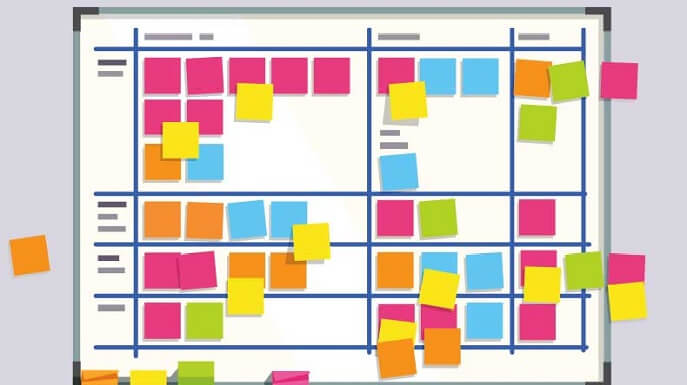What is a problem?
A problem is when something goes wrong. Problems are unwanted issues or situations which cause difficulties and stop you from achieving your goals.
We solve problems everyday
Whether it’s a broken kettle or getting stuck in a traffic jam, we all experience problems on a daily basis.
Problems come in many forms. Examples of workplace problems include:
- IT issues
- Inefficiency
- Financial loss
- Delayed shipments
- Complaints
Why do employers like problem solvers?
Employers love problem solvers, they want people who think logically to fix things when something goes wrong.
Most jobs involve solving problems to some degree. Employers want people who don’t panic when there’s an issue. They want employees to actively find solutions to help the company survive and succeed.
How are problems solved?
There are many ways to approach problem solving, here are a couple:
Solve problems like puzzles
To do this:
- Think about what you’re trying to achieve (the bigger picture)
- View each process as a component (puzzle piece)
- Identify the issue (check which piece is broken or doesn’t fit)
- Find the solution (fix the piece or find the right one)
- Implement it (add the right piece)
- Analyse the results (Is the picture complete?)
Solve problems step by step
Break up the solving process into 5 steps:
- Identify the problem - What’s gone wrong?
- Define the problem - Why has it gone wrong?
- Examine the options - What can be done to solve it?
- Act on a plan - Implement your chosen solution
- Check the result - Is the problem solved?
The above will help you view problems as challenges instead of something to worry about.
Which skills help with solving problems?
There are a range of handy skills which are useful when it comes to solving problems. Key problem solving skills include:
- Research
- Communication
- Teamwork
- Creativity
- Leadership
- Data Analysis
- Flexibility
If you’re a problem solver and the employers you’re applying to are looking for one, be sure to mention your problem solving skills in your CV, applications and interviews.
Which careers involve problem solving?
Most jobs involve solving problems, some more than others. Typical careers and industries which involve heavy problem solving include:
- Consulting
- Engineering
- Research and development
- Law
- Accountancy
- Public Relations
- IT
Each role is different, so read the job description carefully to check if you’re the right type of problem solver they need.
What does it take to be a problem solver?
Problem solving can be tough but fulfilling. To effectively solve a problem, it helps to be:
- Logical
- Creative
- Calm
- Positive
- Determined
- A team player
- Adaptable
Problems solving brings wisdom
Although problems can be stressful, solving them can be incredibly rewarding. There’s always something to learn, so don’t be afraid of them.
Problems are signals, they tell us something is wrong or isn’t working. Finding a solution can teach you lots about the ins and outs of how things work and fit together. It’s a chance to learn new skills and broaden your understanding.
How can you show you’re a problem solver?
Stick them on your CV
Your CV is your chance to make an impression. If you’re a problem solver and the role requires one, mention the skills you hold to show you’re right for the role.
Talk about them
Explain how you’re a problem solver in interviews. Keep your answers short and sweet. A great technique to help your answer concise is STAR, it stands for:
- Situation: Explain the problem, why was it an issue?
- Task: Outline what you had to do to solve the problem
- Action: Describe what you did, did you face any challenges?
- Result: Was the problem resolved? What did you learn?
Example
Question: Describe a work-related problem you’ve faced. How did you deal with it?
Situation
I used to be a senior customer advisor at a bank. 75% of incoming calls were from customers who hadn’t heard from us after applying for a new account online.
Usually a terms and conditions document is sent via post. It needs to be signed and returned to open the account, but customers were not receiving these.
The volume of calls were causing long hold times. Customers would get frustrated and end up complaining.
Task
As a senior, I needed to find out what was going wrong during the application process, reduce incoming calls while managing customer expectations.
Action
I spoke to the relevant admin team. They told me the documents were not being printed due to a technical issue with their system. I suggested making the terms and conditions section part of the online application process as it would open the accounts straight away. It would save time, costs and resources.
Result
After initial hesitance, management decided to implement my suggestion as complaints were reaching unprecedented levels. Incoming calls decreased by 67% and complaints reduced by 73%.
Customer accounts were being opened straight away, making the account opening process simpler and easier. The solution also improved the bank’s environmental footprint due to less paper being used.
How can you improve your problem solving skills?
You can improve your problem solving skills by:
- Learning: Depending on the sector, there may be courses or training workshops available to help give your skills a boost
- Reading: Read books about problem solving techniques to help you learn new ones
- Development: If you work, spend time in different departments to learn how they solve problems. If you're not employed, work experience can be helpful
- Observing: Spend time with experienced colleagues to learn how they solve problems. Ask questions to broaden your understanding
- Getting practical: Role play or games like chess are useful for developing new problem solving strategies









